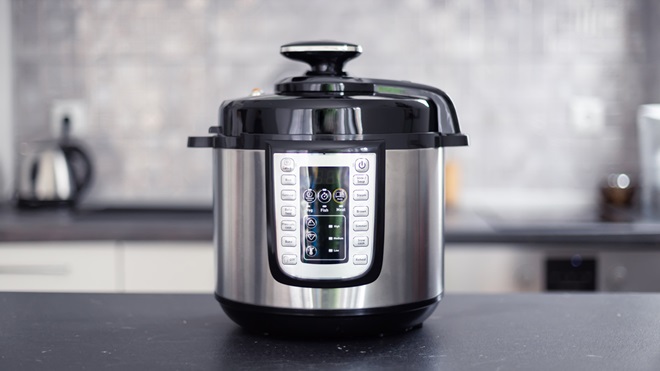Perfectly fluffy steamed rice, slow-cooked curries, melt-in-your mouth pressure-cooked lamb shanks... whichever delicious recipe you want to whip up in the kitchen, there's a good chance a multi-cooker can help you out.
It's a one-size-fits-all solution that can replace multiple appliances in your kitchen, free up space in the cupboard and save you precious time.
We look at the pros and cons to help you decide if you need this versatile kitchen hero in your life.
CHOICE verdict: If you're time-poor and want to reduce the number of appliances in your kitchen, we think a multi-cooker is a good buy.
What is a multi-cooker?
A multi-cooker combines the functions of several appliances, primarily slow cooking and pressure cooking. Depending on which model you buy, it can also replace other appliances like a rice cooker, air fryer, sous vide machine, electric frypan, yoghurt maker, bread maker and steamer.
They come with pre-programmed settings and are easy to use. They're suitable for people who want flexibility in terms of what they cook (and how quickly they cook it), while reducing the number of appliances in their kitchen.
Well-known brands include Philips, Ninja, Russell Hobbs, Crock-Pot, Tefal, Breville and Sunbeam.
Are multi-cookers any good?
The cost of a multi-cooker can run into the hundreds, so it's reasonable to ask if they're worth it.
In short, multi-cookers can be a great addition to your kitchen. They have the ability to both slow and pressure cook, giving you the flexibility of making last-minute meals as well as slow-cooked braises.
Generally, the more features a multi-cooker has, the more it will cost, so be realistic about what you'll use it for
As with any appliance, there are dazzlers and duds, and models at different price points. Generally, the more features a multi-cooker has, the more it will cost, so be realistic about what you'll use it for: will you really start making your own yoghurt or bread if you don't already?
To make sure you're buying a multi-cooker that does a great job, check our detailed reviews before you shop to find the best multi-cooker for your needs.
Multi-cookers: The pros

1. They'll save you time
Cooking corned beef will take you eight hours in a slow cooker, five hours in the oven – or just one hour using the pressure cook function in a multi-cooker.
"Using a pressure cooker cuts cooking time by at least half, depending on what you're cooking," says CHOICE kitchen expert Fiona Mair.
2. They'll save you money
With a multi-cooker, you can transform cheap cuts of meat and staples like dried beans into delicious dishes that'll really hit the spot.
Because they cook so quickly, they're also energy-efficient, so you'll use less energy than cooking with your oven or stovetop.

3. They'll save you space
A multi-cooker can replace a number of kitchen appliances: rice cooker, electric frypan, pressure cooker, slow cooker, air fryer, bread maker, yoghurt maker and steamer.
That frees up a whole lot of cupboard (or bench) space!
Multi-cookers: The cons

1. They don't always slow cook as well as slow cookers
We tested multi-cookers and slow cookers at the same time, and put them through their paces by whipping up multiple batches of slow-cooked chilli beef.
While some of the multi-cookers aced the test, on the whole, the slow cookers delivered better flavour, appearance and melt-in-your-mouth-ness (not an actual score, but we do assess the meat's tenderness and dryness).

2. They're a pain to clean and maintain
"Multi-cookers can be a bit fiddly to clean," Fiona says. "You need to pull everything apart, clean it, and then make sure it's all been put back together correctly."
Cleaning and maintaining the seals and valves is very important as blocked seals can cause issues when pressure cooking.
And you don't want to mess with exploding cookers – as some Thermomix TM31 owners and Aldi pressure cooker owners found out the hard way. One woman was left with extensive burns when her Aldi pressure cooker exploded.
3. Faster cooking can equal less flavour
While multi-cookers can be great at turning out a meal in an hour, it's harder to get the same depth of flavour as you do when cooking for longer periods of time.
"You'll need to add extra seasoning, and sear the meat and onions well," Fiona says.

4. They need supervision
Unlike slow cookers, which you can switch on in the morning before you walk out the door, you can't leave pressure cookers unattended.
This may not be a problem if you're using the pressure cooking function to bang out a meal in under an hour, but it does mean that you can't come home to a meal that's already cooked like you can with a slow cooker.
Stock images: Getty, unless otherwise stated.



